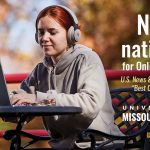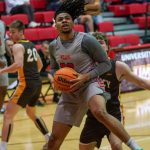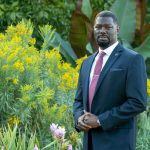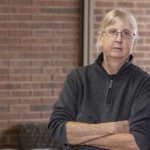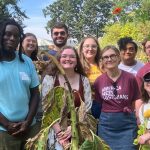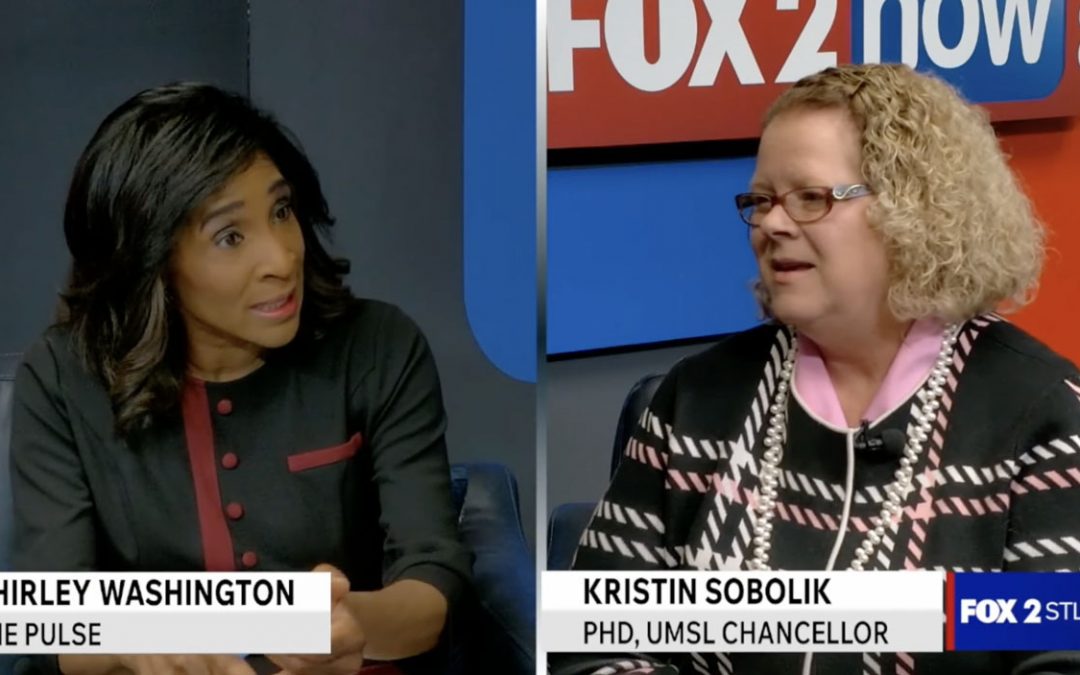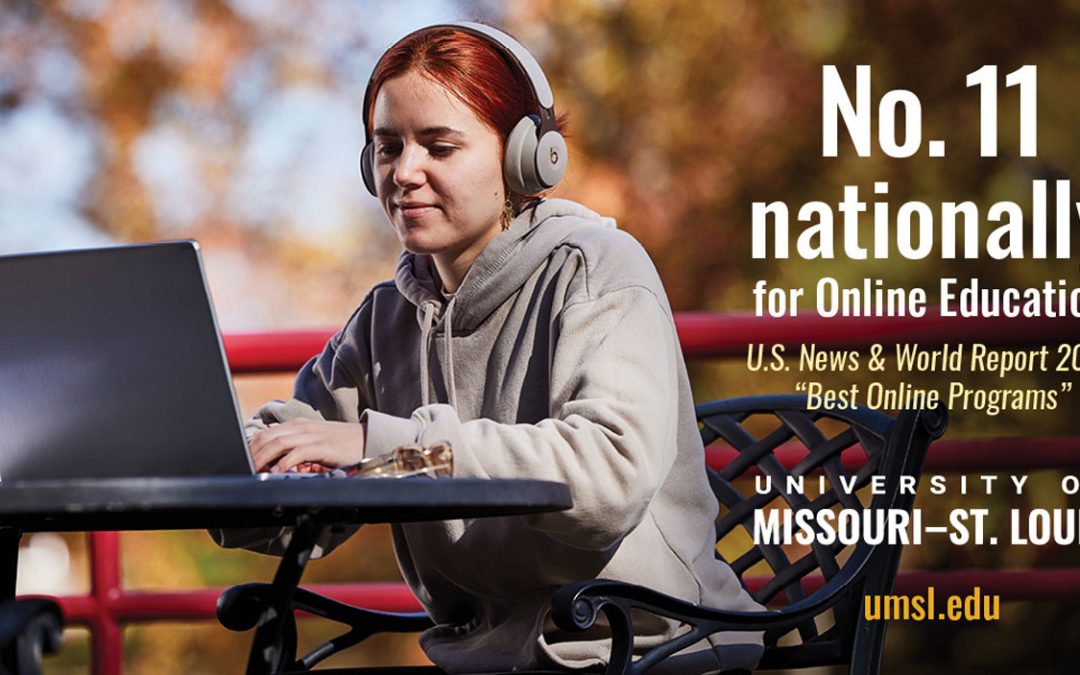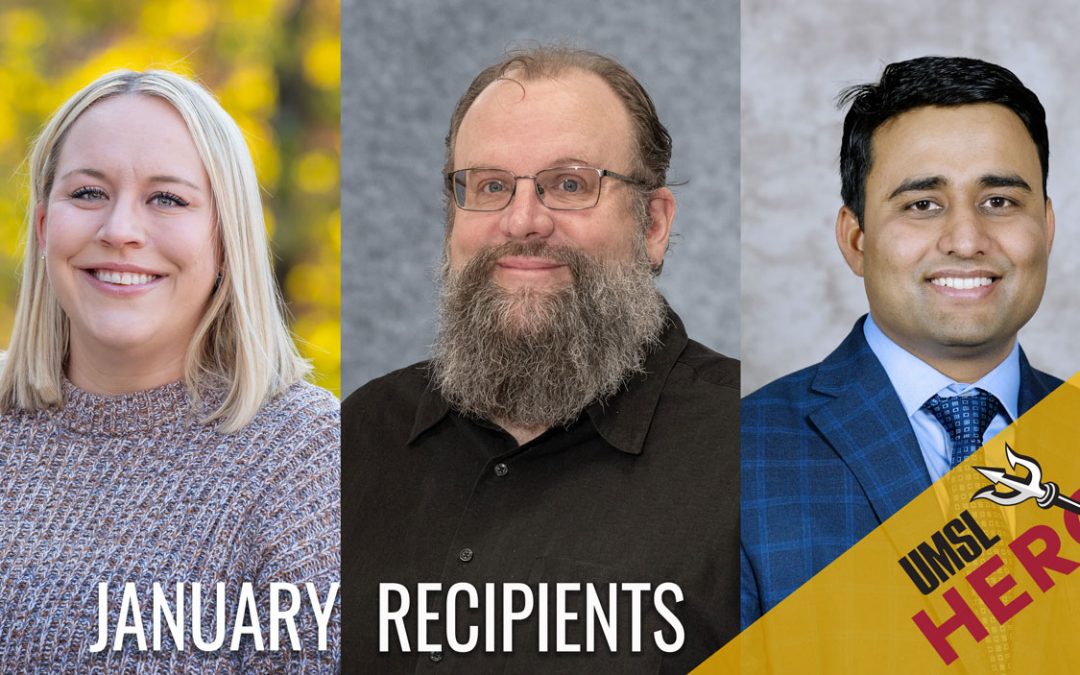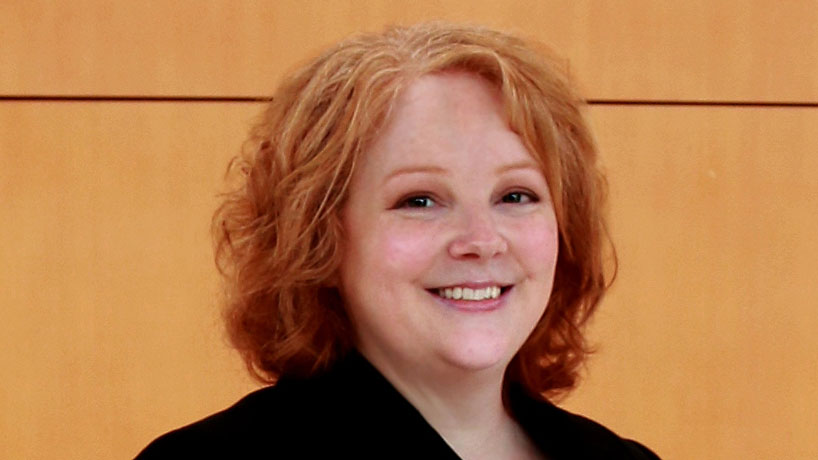
Stephanie Chidester, who finished her PhD at UMSL this past May, began a three-year postdoctoral iCURE fellowship at the National Cancer Institute in July. (Photo courtesy of Stephanie Chidester)
When Stephanie Chidester was in the midst of applying and interviewing for a scholarship to the Intramural Continuing Umbrella of Research Experiences program at the National Cancer Institute, the imposter syndrome started to creep in.
As part of the National Institutes of Health, the iCURE program provides mentored research experiences to scientists and scholars from underrepresented minorities on the NCI campuses in Bethesda, Rockville, and Frederick, Maryland. It’s a competitive program, drawing applications from across the country, and only around 20 or 30 scholars are selected for the fellowship.
Despite her qualifications, Chidester – then a nursing PhD student at the University of Missouri–St. Louis – found the months-long interview and selection process nerve-wracking, to say the least.
“When you have the opportunity to meet some of the other candidates they’re interviewing and interview with potential PIs with whom you could work in the program, it’s easy to get into that impostor syndrome way of thinking, ‘These people are so far beyond who I am and where I am in my scientific career,’” she said. “You become overwhelmed and you develop an inferiority complex sometimes.”
Fortunately, her fears turned out to be baseless, and Chidester – who finished her PhD at UMSL this past May – was accepted into the program. She began the three-year postdoctoral iCURE fellowship at the National Cancer Institute in July but had already relocated to Maryland in 2019, having been awarded a Graduate Partnerships Program fellowship at the National Institute of Nursing Research.
With its emphasis on attracting applicants from populations that are underrepresented in the biomedical sciences, the iCURE program is designed to increase diversity among biomedical researchers within the National Cancer Institute. The selection process considers factors such as race, ethnicity and gender while also bringing in scientists from different disciplines to increase collaborative potential.
“I am a nurse scientist, for instance, whereas many of the trainees at NCI are more mainstream biomedical researchers – say, molecular biology or postdocs from MD or PhD programs,” Chidester said.
Chidester herself was attracted to the iCURE program as a way to continue her training while also learning from experts in her field of interest. As part of her fellowship, she’s studying liquid biopsy technologies, a subject she began researching during her graduate program at UMSL. While her research at the university was focused on developing liquid biopsy technology for better diagnostics and prognostics of diabetes, her work at NCI, of course, examines how the technology could be used in cancer treatment.
At NCI, Chidester is building off the graduate research she did at UMSL by examining how to detect low-abundance biomarkers to predict outcomes by using specific subsets, in the form of extracellular vesicles, of a whole blood sample.
A standard diagnostic blood test, for instance, would use a whole blood sample to try to detect a molecule in the bloodstream that could predict an outcome, whether good or bad. But as Chidester explains, there must be an abundant amount of a particular molecule in that blood sample in order for it to be detected, and its origin is still unknown – it could have been released from any number of organ systems throughout the body.
To that end, Chidester’s work looks at how extracellular vesicles might be used in blood samples to predict outcomes more accurately. These vesicles, which circulate in the blood, are incredibly small – typically between 50 and 150 nanometers. They’re derived from the cell membrane and often feature membrane markers that can indicate which type of tissue or cell may have released them, which Chidester likens to a return address.
“In the case of diabetes, let’s say they have markers indicating that they originated from the pancreas or from adipose tissue or from muscle tissue,” she said. “We can pull those out and then have a way to diagnose what’s going on in the pancreas, adipose tissue or muscle tissue that might be increasing likelihood of disease or complications. So, it is a biopsy without having to go in and take a sample of that actual tissue. We can get information about that tissue from the extracellular vesicles in the blood sample.”
The hope, naturally, is that by learning more about how to develop the technology, it could also be applicable to other diseases outside of cancer.
But the iCURE fellowship isn’t just helping Chidester and her colleagues further their own research. The program also offers plenty of learning experiences for the fellows to benefit from together as a cohort, including research talks, scientific interest groups, workshops, courses and more.
“It’s really a tremendous experience and there are more opportunities than any one fellow could possibly participate in, in their wildest imaginations,” she said. “There are, on a daily basis, research talks being given by scientists from all of the different institutes at NIH, many of which are relevant – either directly or peripherally – to my own or other trainees’ research interests. There are scientific interest groups; for instance, I participate in extracellular vesicle or extracellular RNA scientific interest groups.”
The program is also designed to offer professional development and career exploration for the fellows, including opportunities to work closely with world-class biomedical research scientists at the National Cancer Institute and to connect with a larger mentoring network. Chidester said it’s been a vital step in helping her progress toward her long-term career goal of becoming an independent researcher.
“Right now, my trajectory is toward becoming a faculty member and academic researcher, so my PI and my mentors at iCURE are helping me develop a plan that’s going to help me achieve that,” she said. “That includes learning the skill sets needed to successfully apply for funding for my research, or being able to transition from a postdoctoral fellow to a faculty member who’s conducting her own program of research. It’s really a great program, and I feel extremely blessed and fortunate to have been selected as an iCURE scholar, to be able to interact with others in this program and learn from the circle of mentors that are helping me to develop professionally.”
She’s also able to receive that career development and training without dealing with many of the biases she’s experienced in the past due to her gender or profession. The scientific community isn’t always especially welcoming to nurse researchers and nurse scientists, she said, but in the iCURE program, that’s been anything but true.
“One of the wonderful things about working at NIH is that, to a large extent, I haven’t had to deal with a lot of the biases that many people experience as women in STEM fields,” she said. “When I tell people what I’m doing as a nurse researcher, I can get this really odd reaction sometimes of, ‘But you’re a nurse. You shouldn’t be doing that,’ or somehow thinking I’m not qualified to do that, even though I do have extensive training and background.
“At NIH, I really don’t encounter that so much. Through Paule Joseph at NINR and NIAAA and Dr. Jennifer Jones at NCI, I’ve been able to develop a circle of mentors who are helping me not only develop my skill set as a researcher, but learn what I need to succeed as a woman in science.”




